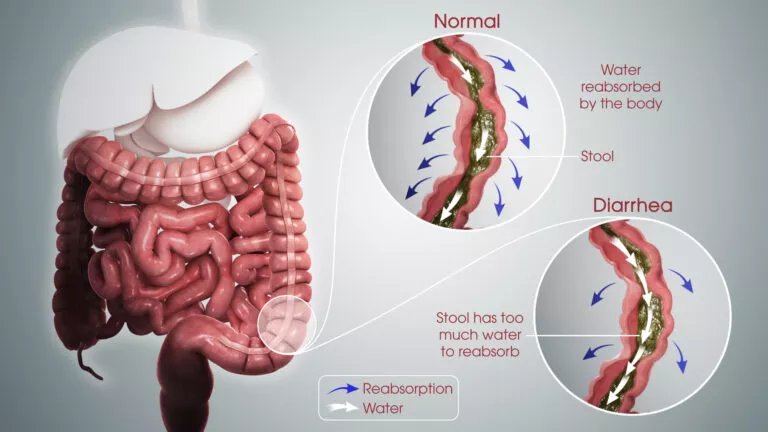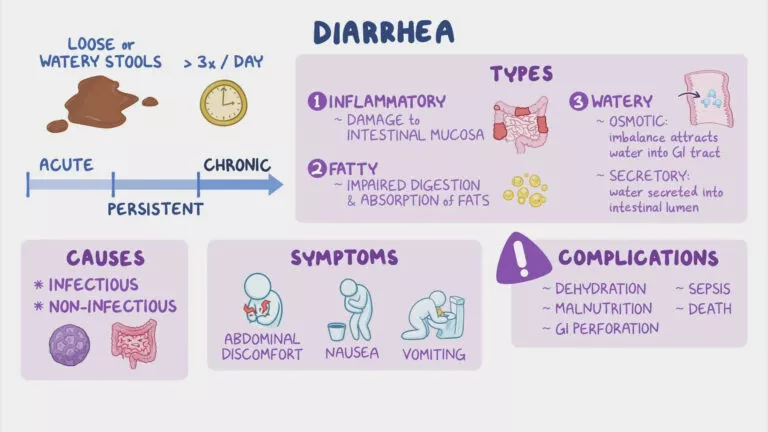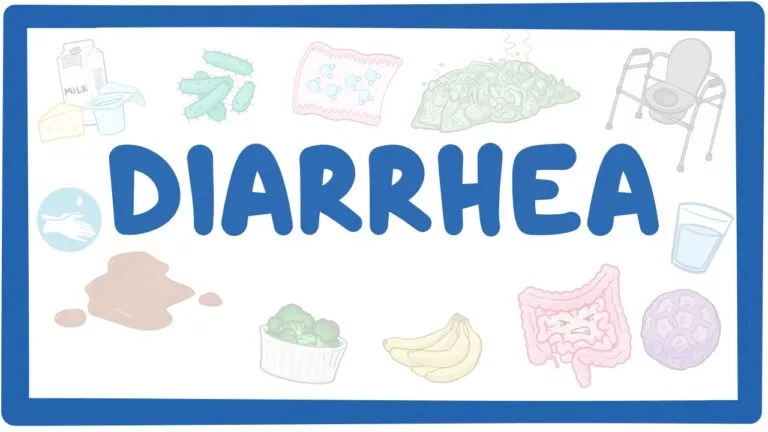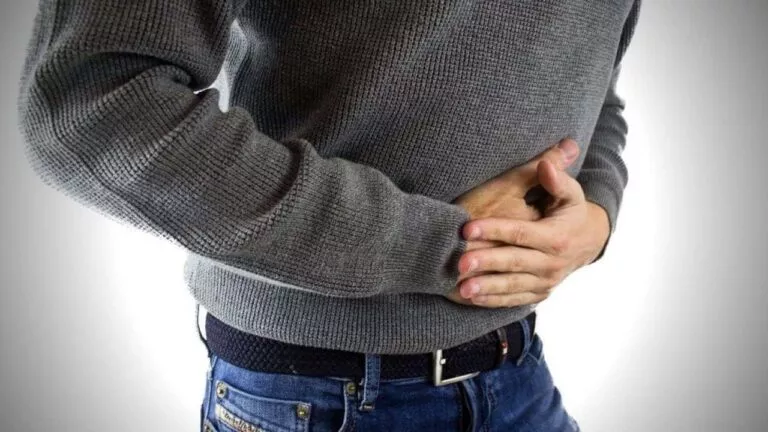WHAT IS DIARRHEA?
Diarrhea — loose, watery, and possibly more-frequent bowel movements — is a common issue. It might be present alone or be associated with other symptoms, such as nausea, vomiting, abdominal pain, or weight loss.
Luckily, diarrhea is generally short-lived, lasting no more than a few days. But when diarrhea lasts beyond a few days into weeks, it usually indicates that there is another problem — such as irritable bowel syndrome (IBS) or a more severe disorder, including continuous infection, celiac disease, and inflammatory bowel disease (IBD).
DIARRHEA SYMPTOMS
Signs and symptoms associated with diarrhea (loose, watery stools) might include:
- Abdominal cramps or pain
- Bloating
- Nausea
- Vomiting
- Fever
- Blood in the stool
- Mucus in the stool
- Urgent need to have a bowel movement
WHEN SHOULD YOU SEE A DOCTOR?
If you are a grown-up, see your doctor if:
- Your diarrhea continues beyond two days with no improvement
- You become dehydrated
- You have severe abdominal or rectal pain
- You have bloody or black stools
- You have a fever above 102 Fahrenheit (39 Celsius)
In children, especially young children, diarrhea could quickly lead to dehydration. Call your doctor if your child’s diarrhea does not improve within 24 hours or if your child:
- Becomes dehydrated
- Has a fever above 102 Fahrenheit (39 Celsius)
- Has bloody or black stools
DIARRHEA CAUSES
A number of diseases and conditions could cause diarrhea, including:
- Viruses – Viruses that can cause diarrhea include Norwalk virus (also called norovirus), enteric adenoviruses, astrovirus, cytomegalovirus, and viral hepatitis. Rotavirus is a frequent cause of acute childhood diarrhea. The virus that causes coronavirus disease 2019 (COVID-19) has also been related to gastrointestinal symptoms, including nausea, vomiting, and diarrhea.
- Bacteria and parasites – Exposure to pathogenic bacteria, for example, E. coli or parasites through contaminated food or water, results in diarrhea. When traveling in developing countries, diarrhea caused by bacteria and parasites is often known as traveler’s diarrhea. Clostridioides difficile (also called C. diff) is another type of bacterium that causes diarrhea, and it could occur after a course of antibiotics or during hospitalization.
- Medications – Many medications, such as antibiotics, could cause diarrhea. Antibiotics not only alleviate infections by killing bad bacteria but also kill good bacteria. This disturbs the natural balance of bacteria in your intestines, leading to diarrhea or a superimposed infection like C. diff. Other medications that cause diarrhea are anti-cancer drugs and antacids with magnesium.
- Lactose intolerance – Lactose is the sugar found in milk and other dairy products. People who have trouble digesting lactose have diarrhea after eating dairy products. Lactose intolerance could increase with age because levels of the enzyme that helps digest lactose drop as you age.
- Fructose – Fructose is the sugar found naturally in fruits and honey. It is at times added as a sweetener to specific beverages. Fructose could lead to diarrhea in people who have trouble digesting it.
- Artificial sweeteners – Sorbitol, erythritol, and mannitol — artificial sweeteners are nonabsorbable sugars found in chewing gum and other sugar-free products — could cause diarrhea in some otherwise healthy people.
- Surgery – Partial intestine or gallbladder removal surgeries could sometimes cause diarrhea.
- Other digestive disorders – Chronic diarrhea has a lot of other causes, like IBS, Crohn’s disease, ulcerative colitis, celiac disease, microscopic colitis, and small intestinal bacterial overgrowth (SIBO).
COMPLICATIONS
Diarrhea can cause dehydration, which could be life-threatening if untreated. Dehydration is especially dangerous in children, senior citizens, and those with weakened immune systems.
If you have signs of severe dehydration, seek medical help.
Indications of dehydration in adults
These include:
- Excessive thirst
- Dry mouth or skin
- Little or no urination
- Weakness, dizziness, or lightheadedness
- Fatigue
- Dark-colored urine
Indications of dehydration among infants and young children
These include:
- Not having a wet diaper in three hours or more
- Dry mouth and tongue
- Fever above 102 Fahrenheit (39 Celsius)
- Crying without tears
- Drowsiness, unresponsiveness, or irritability
- Sunken appearance to the abdomen, eyes, or cheeks
PREVENTION
Preventing infectious diarrhea
Wash your hands to prevent infectious diarrhea from spreading. To make sure adequate hand-washing:
- Wash frequently – Wash your hands prior to and after preparing food. Wash your hands after handling uncooked meat, using the toilet, changing diapers, sneezing, coughing, or blowing your nose.
- Lather with soap for at least 20 seconds – After putting soap on your hands, rub your hands together for at least twenty seconds. That is about as long as it takes to sing “Happy Birthday” twice through.
- Use hand sanitizer when washing is not possible – Use an alcohol-based hand sanitizer when you cannot get to a sink. Apply the hand sanitizer as you would hand lotion, ensuring to cover the fronts and backs of both hands. Use a product that contains at least 60 percent alcohol.
Vaccination
You could help protect your infant from rotavirus, the most common cause of viral diarrhea in children, with one of two approved vaccines. Check with your baby’s doctor about having your baby vaccinated.
Preventing traveler’s diarrhea
Diarrhea commonly affects people who travel to countries where there is inadequate sanitation and contaminated food. To lower your risk:
- Watch what you eat – Eat warm, well-cooked foods. Avoid raw fruits and vegetables unless you could peel them yourself. Also, avoid raw and undercooked meats and dairy foods.
- Watch what you drink – Drink bottled water, soda, beer, or wine served in the original container. Avoid tap water or ice cubes. Use bottled water to brush your teeth as well. Keep your mouth closed while you take a shower.
Beverages made with boiled water, like coffee and tea, are probably safe. Remember that alcohol and caffeine could aggravate diarrhea and worsen dehydration.
- Ask your doctor about antibiotics – If you are traveling to a developing country for an extended time, ask your doctor about antibiotics before you go, particularly if you have a weakened immune system.
- Check for travel warnings – The Centers for Disease Control and Prevention maintains a travelers’ health website where disease warnings are posted for several countries. If you are planning to travel outside of the United States, check there for warnings and tips for minimizing your risk.
DIARRHEA DIAGNOSIS
Your doctor will ask about your medical history, review the medications you take, conduct a physical examination, and may order tests to determine what is causing your diarrhea. Possible tests include:
- Blood test – A complete blood count test, measurement of electrolytes, and kidney function tests could help indicate the severity of your diarrhea.
- Stool test – Your doctor may recommend a stool test to see if a bacterium or parasite is causing your diarrhea.
- Hydrogen breath test – This type of test could help your doctor determine if you have lactose intolerance. Once you drink a liquid that contains high levels of lactose, your doctor measures the amount of hydrogen in your breath at regular intervals. Breathing out too much hydrogen indicates that you are not fully digesting and absorbing lactose.
- Flexible sigmoidoscopy or colonoscopy – Using a thin, lighted tube that is inserted into your rectum, your doctor could see inside your colon. The device is also equipped with a tool that enables your doctor to take a small sample of tissue (biopsy) from your colon. Flexible sigmoidoscopy provides a view of the lower colon, while colonoscopy enables the doctor to see the entire colon.
- Upper endoscopy – Doctors use a long, slim tube with a camera on the end to examine your stomach and upper small intestine. They might remove a tissue sample (biopsy) for analysis in the laboratory.
DIARRHEA TREATMENT
Most cases of acute diarrhea resolve on their own within a couple of days without treatment. If you have tried lifestyle changes and home remedies for diarrhea without success, your doctor may recommend medications or other treatments.
Antibiotics or anti-parasitics
Antibiotics or anti-parasitic medications may help treat diarrhea caused by bacteria or parasites. If a virus is causing your diarrhea, antibiotics would not help.
Treatment to replace fluids
Your doctor will probably advise you to replace the fluids and salts. For most adults, that means drinking water with electrolytes, juice, and broth. If drinking liquids upsets your stomach or causes vomiting, your doctor may recommend getting IV fluids.
Water is a good way to replace fluids, but it does not contain the salts and electrolytes — minerals like sodium and potassium — that are essential for your body to function. You could help maintain your electrolyte levels by drinking fruit juices for potassium or eating soups for sodium. But specific fruit juices, such as apple juice, might make diarrhea worse.
For children, ask your doctor about using an oral rehydration solution, like Pedialyte, to prevent dehydration or replace lost fluids.
Adjusting medications you are taking
If your doctor determines that an antibiotic caused your diarrhea, he or she may lower your dose or switch to another medication.
Treating underlying conditions
If your diarrhea is caused by a more severe condition, such as inflammatory bowel disease, your doctor will work to control that condition. You might be referred to a specialist, like a gastroenterologist, who can help devise a treatment plan for you.
If you or anyone you know is suffering from diarrhea, our expert providers at Specialty Care Clinics will take care of your health and help you recover.
Call 469-545-9983 to book a telehealth appointment for an at-home check-up.




